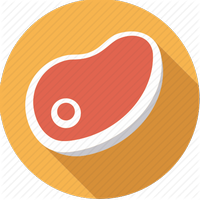Medjools are a type of date that is native to the Middle East. They have been cultivated for thousands of years and they’re one of the people’s favorite fruits! Humans love them because they’re so sweet, but you can also eat them as part of your healthy diet plan if you want to lose weight. The best thing about Medjools dates is that you don’t need any cooking or preparation before eating them. You just slice off their pit, and then you get to enjoy this delicious fruit right away. If you buy organic dates, make sure you wash them well with warm water to remove all the dust from them.
Medjools are a wonderful source of fiber, vitamins, and minerals. They also have the highest levels of antioxidants found in fruit! Now, we are going to unpack all the details towards Medjool dates calories content and this product’s value.
History
The word “date” is derived from the Arabic daat al-khayr, meaning “the gift of health.” It was first introduced into England during the reign of Edward III, who received his wife Isabella at Calais in 1337; she brought along some Persian dates that were so delicious.
Dates have been used in traditional medicine for centuries because of their high nutritional value. The ancient Egyptians chewed on stalks of date palms mixed with honey or butter to treat coughs, colds, sore throats, stomachaches, toothaches, and headaches. Today, medjools are still widely consumed throughout North Africa, Southern Europe, India, Pakistan, China, Japan, Thailand, Indonesia, Malaysia, Australia, New Zealand, Northern America, Brazil, Mexico, Central and Western Africa, and the Caribbean region. In Ethiopia, where the majority of people eat only once every three days, fresh dates are considered an important source of vitamins A, B1, C, E, iron, calcium, phosphorus, potassium, zinc, copper, manganese, magnesium, riboflavin, niacin, folate, and thiamine.
Nutrition facts about Medjool dates
The following is an overview of the nutritional value of Medjools according to nutritiondata.self.com:
Calories per 100 grams—438 kcal
Protein – 0 g
Fat – 3 g
Total carbohydrate – 77 g
Dietary Fiber – 7 g
Water content – 1%
Vitamin C – 30 mg
Iron – 2 mg
Potassium – 491 mg
Zinc – 10 mg
Sodium – 13 mg
Phosphorus–615 mg
Dates have been used for centuries by cultures around the world because they’re packed with vitamins, minerals, protein, healthy fats, and more—so you should definitely include these tasty treats in your diet!
What makes Medjools different from other types of dates?
Dried Medjools measure about 8 inches long with an average diameter of 3/4 inch; fresh ones weigh around 1 pound each. The fruit has yellowish or brown skin that turns dark when exposed to air and is covered in tiny pits. These sweet treats can be eaten out of hand or used in cooking. You can store dates in your pantry until you need them—they keep well at room temperature for up to several months. If stored properly, they won’t go bad unless a mold forms on top.
What are Medjools different? It is because Medjools were grown under controlled conditions at higher altitudes, where there is less oxygen available to prevent molding. The result is a sweeter date that does not dry out easily. These dates contain more carbohydrates, minerals, and vitamins. They are packed full of essential nutrients including protein, calcium, iron, magnesium, and zinc.

